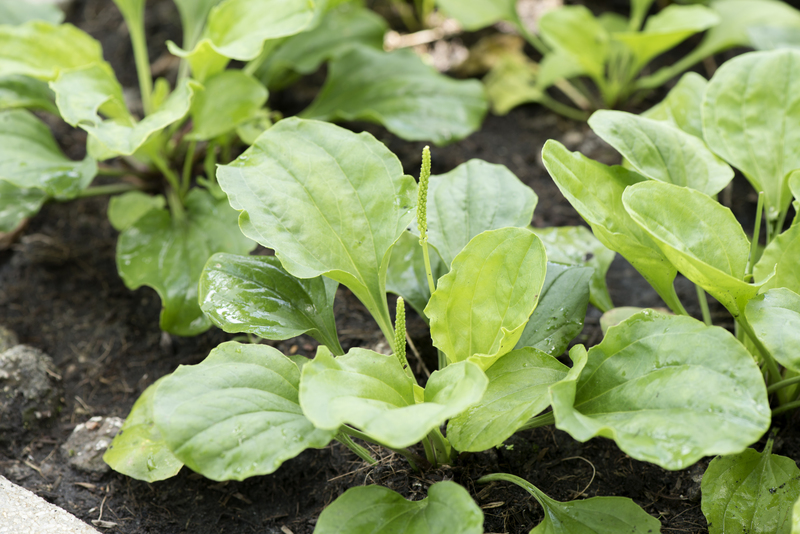9 Tips to Ensure Your First Garden Flourishes
Posted on 25/09/2025
9 Tips to Ensure Your First Garden Flourishes
Dreaming of a thriving, vibrant, and beautiful garden? Embarking on your first gardening journey can be an exciting and rewarding experience. However, it's easy to feel overwhelmed by all the information and advice out there. Whether you want to grow stunning flowers, luscious vegetables, or a mix of both, this guide offers essential tips and expert advice to make your first garden flourish. With these nine garden-proven strategies, you'll transform your backyard or balcony into a lush, productive paradise in no time!
1. Assess and Prepare Your Garden Site
Every successful garden begins with the right site assessment and preparation. Before you plant the first seed, spend some time getting to know your outdoor space.
Identify the Ideal Location
- Sunlight Exposure: Most edible and ornamental plants require at least 6-8 hours of direct sun per day. Observe how sunlight moves across your garden to identify the best spots.
- Accessibility: Choose a spot that is easy to reach for watering and maintenance. A garden that's tucked away and hard to get to is more likely to be neglected.
- Soil Quality: Avoid low areas where water accumulates, as poor drainage can be detrimental. Instead, seek gently sloping or flat areas with good natural drainage.
Soil Preparation
- Clear debris, weeds, and rocks from your gardening area.
- Consider a raised garden bed if your soil quality is poor or you have limited space.
- Loosen soil to a depth of at least 12 inches to promote healthy root growth.
Proper planning and site preparation set a strong foundation for a flourishing beginner garden.

2. Test and Enrich Your Soil
Healthy plants start with healthy soil. Understanding and nourishing your soil is crucial to ensuring your first garden thrives.
Why Test Your Soil?
- Soil tests reveal nutrient deficiencies, pH imbalances, and potential contaminants.
- Routine soil testing helps prevent plant health issues and lets you amend your soil proactively.
How to Enrich Your Soil
- Mix in organic matter such as compost, manure, or well-rotted leaf mulch. This boosts fertility and improves texture.
- Add a balanced, slow-release fertilizer if the soil test indicates deficiencies.
- Mulching helps conserve moisture, suppress weeds, and gradually enrich the soil as it breaks down.
By investing time in your soil, you'll set yourself up for a garden that flourishes season after season.
3. Choose the Right Plants for Your Region
One of the most important steps for growing a successful first garden is choosing plants that thrive in your local environment. Not every flower or vegetable grows well everywhere.
Consider Climate and Zone
- Consult the USDA Plant Hardiness Zone Map or your region's equivalent to identify plants suited to your climate.
- Look for native species or varieties specifically bred for your local conditions--they're more likely to flourish and require less care.
Pick Beginner-Friendly Varieties
- Opt for disease-resistant plants and high-yield varieties.
- Start with easy-to-grow vegetables like lettuce, beans, radishes, or sturdy flowers like marigolds and zinnias.
Your garden's potential for flourishing is largely determined by your initial plant choices!
4. Planting at the Right Time
Knowing when to plant is as crucial as choosing what to plant. Each plant has an ideal sowing and transplanting window based on your climate.
Tips for Proper Timing:
- Read seed packets and plant tags for timing guidance.
- Use your region's last-frost and first-frost dates as a planting schedule foundation.
- Consider starting seeds indoors to get a head start, especially in short growing seasons.
Remember, patience is key: plant too early, and you risk frost damage; plant too late, and your garden might not mature before season's end.
5. Water Wisely and Consistently
Efficient watering is one of the secrets to a flourishing beginner garden. Plants need consistent moisture, but over- or under-watering can cause numerous problems.
Golden Rules of Garden Watering
- Water deeply, not frequently: One or two thorough waterings per week are generally better than daily surface sprinklings.
- Water early in the morning to reduce evaporation and prevent fungal diseases that thrive in late-day moisture.
- Use mulch to help retain soil moisture and keep roots cool in hot spells.
- Avoid wetting leaves; water the soil at the base of your plants.
Consistent watering routines will help your plants establish strong roots and lush foliage, ensuring your new garden truly flourishes.
6. Feed Your Plants for Lush Growth
Even rich soil can become depleted as your plants grow. Regular feeding ensures your first-time garden stays vigorous and productive.
Tips on Fertilizing Your Garden
- Follow the fertilizer recommendations from your soil test.
- Apply organic options--like fish emulsion or compost tea--for a gentle, slow nutrient boost.
- Use granular, slow-release fertilizers for steady nutrition.
- Avoid over-fertilization: Excess can burn plant roots and harm beneficial soil life.
Remember, healthy, well-fed plants are more resistant to pests and diseases, helping your garden flourish.
7. Keep Weeds Under Control
Weeds compete with your crops and ornamentals for sunlight, water, and nutrients. Keeping them in check is vital in the early stages of a new garden.
Effective Weed Management Tips:
- Mulch liberally with straw, wood chips, or shredded leaves to smother weed growth and keep soil moist.
- Hand-pull weeds regularly, especially when they're small and before they set seed.
- Consider installing weed barrier fabrics in pathways or between garden beds.
- Inspect your garden weekly: Staying on top of weed growth reduces long-term effort.
By managing weeds consistently, you'll ensure that your plants get the resources they need to flourish and thrive.
8. Practice Smart Pest and Disease Control
No gardener is immune to pests and plant diseases, but early detection and control strategies can prevent problems from spiraling out of control.
Proactive Pest and Disease Prevention
- Inspect plants often for signs of insects, chewed leaves, discoloration, or mold.
- Encourage beneficial insects, like ladybugs and lacewings, which prey on garden pests.
- Remove diseased foliage promptly and dispose of it away from the garden to prevent spread.
- Use natural remedies like neem oil, insecticidal soap, or companion planting to deter pests safely.
- Rotate crops each year to minimize soil-borne diseases.
With consistent vigilance and eco-friendly pest management, your garden is more likely to prosper and stay healthy.
9. Maintain, Observe, and Enjoy Your Growing Garden
Establishing a flourishing first-time garden is an ongoing process. Regular observation and maintenance are essential to continued health and growth.
Routine Garden Care Checklist
- Check soil moisture and watering systems regularly.
- Deadhead spent blossoms and harvest ripe produce to encourage more growth.
- Prune plants as necessary for shape, size, and removal of damaged stems.
- Update your garden journal: Track what works, timing, plant success, and what you'd do differently next season.
Take time to enjoy your garden: Observe the bees and butterflies, savor the fragrance and flavors, and celebrate your first gardening successes!

Frequently Asked Questions: Beginner Gardening Tips
How do I start my first garden with limited space?
Start small! Try a few raised beds, container gardens, or vertical planters if your outdoor space is restricted. Choose compact, high-yielding varieties and maximize vertical space with trellises or hanging baskets. Herbs, lettuce, tomatoes, and strawberries do well in containers.
Can I have a flourishing first-year garden with minimal effort?
While all gardens need some care, focusing on low-maintenance plants and mulching can significantly reduce time spent on watering, weeding, and pest management. Native plants tend to require less ongoing attention.
What is the best way to keep my garden flourishing through the season?
Consistency is key: water on schedule, observe your plants regularly, and address pests or nutrient needs early. Mulching, rotating crops, and using compost all help maintain garden health and productivity.
Conclusion: Watch Your First Garden Flourish!
Ready to see your first garden burst into life? By following these nine expert-backed tips--site selection, soil prep, smart plant choices, correct timing, consistent watering, regular feeding, weed and pest control, and mindful maintenance--you'll overcome common beginner mistakes and cultivate a lush, thriving outdoor retreat.
Don't just dream about a flourishing garden; make it a reality this growing season. Dig in, get your hands dirty, and enjoy every step of your new garden adventure!
Share these tips, bookmark this guide, and come back for more garden wisdom as you grow!
- Ready for more gardening inspiration? Explore our resources on organic gardening, container gardens, and year-round planting to continue your green-thumb journey!
Latest Posts
9 Tips to Ensure Your First Garden Flourishes
Journey to Orchid Mastery: A Comprehensive Guide
Waste Transformation: Path to Soil Vibrancy
Elevating Outdoor Spaces with Sculpted Hedge Styles
Breathe New Life into Your Garden with Inspired Seating Creations

